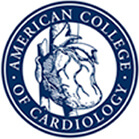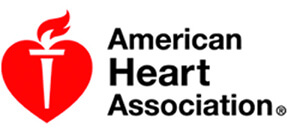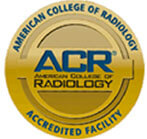Decoding Heart Murmurs: Causes, Diagnosis, and Treatment
- Posted on: Oct 20 2023
Heart murmurs are common conditions, and the majority of them are harmless. They’re particularly normal in children, who then outgrow the condition, with only a small percentage carrying the murmur into adulthood. In some instances, however, heart murmurs can develop later in life and point to a more serious issue.
So how can you determine whether you’ve got a heart murmur that requires treatment, and what options are available if you do?
Heart Murmurs: The Causes of the Whooshing Sound
A heart murmur usually involves a swishing or whooshing sound that can be heard through a stethoscope when blood courses normally over your heart’s valves.
When your heart beats, an intricate pattern of opening and closing valves begins, allowing blood to flow as necessary. The sounds that closing valves make are usually “lub dub” — if the valves instead make a whooshing sound, you may have a heart murmur. All it means is that blood is not flowing normally along the valves.
Some people have systolic heart murmurs, which occur when the muscle contracts, while others have diastolic murmurs, which occur when the muscle relaxes.
If you have a heart murmur that occurs both during contraction and relaxation of the heart, it’s a continuous heart murmur. The two types that are most closely related to heart disease are systolic and diastolic murmurs.
Reasons You May Have a Heart Murmur
So what causes the murmur? If you have an innocent heart murmur, it occurs when blood flows more rapidly than normal in circumstances, such as:
- After exercising
- During childhood
- During pregnancy
- During growth spurts
Less benign heart murmurs can begin because of other conditions.
Conditions that can cause more serious heart murmurs include:
- Endocarditis
- Anemia
- Heart valve disease
- Hyperthyroidism
- Congenital heart defects
- Hypertrophic cardiomyopathy
Some people are born with heart murmurs, while others develop them later in life.
Diagnosing a Heart Murmur
Harmless heart murmurs generally don’t have symptoms, but those related to heart conditions can present with:
- Shortness of breath
- Dizziness
- Fainting
- A cough that won’t go away
- Chest pain
- Bluish lips and fingertips
- Profuse sweating
The best way to get an accurate diagnosis is to turn to professionals for help. A healthcare provider will listen to your heart using a stethoscope, focusing on everything from the pitch of the heartbeat to its timing and volume.
You may have to perform different actions as they check, like gripping your hands tightly, squatting, or standing suddenly.
If you do have a heart murmur, you may then need to get a few different types of tests to see what the cause is. These include an electrocardiogram (EKG), echocardiogram, and chest X-ray.
Treating a Heart Murmur
A benign heart murmur doesn’t need treatment, but if you have a murmur that points to an underlying issue, treating it will depend on the condition itself.
If the cause is something like anemia, for example, taking iron supplements can be enough to resolve the issue. You may need medications, like anticoagulants, if the murmur is related to uneven heart rhythms, or beta-blockers if the problem is high blood pressure.
If you have damaged heart valves, you may need to undergo heart valve repair surgery. This can be done as open-heart surgery, robotic surgery, or minimally invasive surgery. It can also be done via a catheter procedure.
Getting the Answers You Need
If you’ve noticed any of the symptoms of a heart murmur, it’s time to get the answers you need. At Cardiovascular Wellness of Hicksville and Lake Success, NY, we can perform all of the necessary tests to ensure we get to the root of the problem, so you can get quick and effective help.
Contact us to make an appointment with our cardiology experts today.
Posted in: Heart Health






